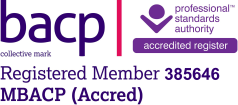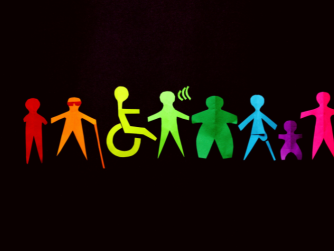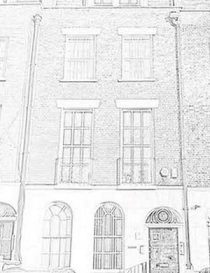John J Ahearne - LCaP
(London Counselling and Psychotherapy)
Integrative Therapeutic Talking & Listening Therapy, through a Psychodynamic Lens
Accredited Counsellor and Psychotherapist with clinics in Angel N1, Islington EC1V, Holborn, Bond Street, Harley Street, Cavendish Square, Oxford Street, the West End, and Marylebone.
Face-to-face & online counselling sessions for adult individuals, couples and other relationships (family and non-traditional).


Welcome to my website
I am a qualified and accredited counsellor with clinics across Angel, Islington London, Holborn, Bond Street, Harley Street, Cavendish Square, Oxford Street, the West End, and Marylebone.
I am committed to providing counselling, psychotherapy, and talking therapy in a safe, confidential, and non-judgmental environment. I work with individuals and couples using an open-ended counsellor approach or for an agreed-upon period to enable you to enhance your life experience(s) and live them more fully.
I understand that seeking out therapy might be a difficult decision for some, but I firmly believe that when an individual makes that step, it is because they are ready for change and growth. Using my counsellor training and counsellor knowledge, I will work with you towards a better awareness of yourself and yourself in relation to those around you.
Nothing you say will shock me, and everything you say is always confidential.
Together, we will recognise and explore patterns in yourself and others, what your triggers are, and where those patterns may have originated. I do not believe in immediate fixes; rather, most issues are relational problems.
I work from clinics in Angel, Islington London, High Holborn, Holborn, Bond Street, Wimpole Street, Harley Street, Cavendish Square, Oxford Street, the West End, and Marylebone. Currently, I have availability in Islington, West End and Marylebone

It's about the relationship we have with a problem that causes us pain; how you react to a topic, person or life event that causes upset in your personal and/or professional life.
The Process for starting
The process is something like this:
- We have an initial 15-minute telephone call.
- You tell me a little bit about what is going on for you and why you have reached out for counselling and psychotherapy.
- I will tell you a bit about what I can offer you as an integrative therapist.
- If by the end of the telephone consultation we are both happy to go ahead, we move on to looking at both our diaries to agree on a weekly day/time slot for each week in person at Angel, Islington, Holborn, Bond Street, Wimpole Street, Oxford Street, the West End, and Marylebone. I also offer online counselling sessions or hybrid counselling sessions.
- I offer a once-weekly model, which can be short-term therapy or long-term therapy (open-ended).
- If you would prefer a full in-person assessment session in Angel, Islington London, Holborn, High Holborn, Bond Street, Wimpole Street, Harley Street, Cavendish Square, Oxford Street, the West End, and Marylebone, please do ask.

Couns.Dip, Cert.Psych, MBACP
My locations
I am a qualified counsellor offering face-to-face counselling and psychotherapy services in Angel Islington, Holborn, Bond Street, Wimpole Street, Harley Street, Cavendish Square, Oxford Street, the West End, and Marylebone, London.
I also offer online counselling sessions via the secure platform Zoom. Hybrid online and face-to-face counselling sessions are also available.
Fees & availability
- Adult Individual Counselling and Psychotherapy: £90 - £145 per therapeutic session (50 minutes)
- Adult Individual Counselling and Psychotherapy: more than once per week: £90 per therapeutic session (50 minutes)
- Adult Couple Counselling and Psychotherapy/ Separation Therapy: £135 - £185 per therapeutic session, depending on time of day & length of session
- Other Relationships Counselling and Psychotherapy: £135 - £185 per therapeutic session, depending on time of day and length of session
I am available for a free 15-minute conversation on the telephone for clients to discuss what they want out of therapy. Please ask about an in-person full assessment session if you prefer—in Angel, Islington London, Holborn, High Holborn, Bond Street, Wimpole Street, Harley Street, Cavendish Square, Oxford Street, the West End, and Marylebone.

Some of the issues that people search for on the internet when seeking out therapy
Feb 2026 (source: counselling directory)
- Depression
- Low self-esteem
- Anxiety
- Low self-confidence
- Family issues
- Trauma
- Stress
- Bereavement
- Couples therapy
- Mental health
- Feeling sad
- Loneliness
- Addiction
- LGBTQ+ counselling
- Kink aware therapy
- Childhood trauma
- Neurodiversity
- Person-centred therapy
- W1G Psychotherapy
- Social anxiety
- Anger management
- Integrative counselling
- Panic attacks
- Sex problems
- Attachment disorder
- Cognitive and behavioural therapies
- Psychodynamic therapy
- Health anxiety
- Islington Counselling
- Suicidal thoughts
- Affairs and betrayals
- Boarding school trauma
- Eating disorders
- Abuse
- Work-related stress
- Generalised anxiety disorder
- Dissociation
- Perfectionism
- Islington
- Marylebone Counselling
- Alcoholism
- Emotional abuse
- West End Counselling
- Career counselling
- Self-harm
- Sexual abuse
- Binge-eating disorder
- Psychoanalytic therapy
- Adverse childhood experiences (ACE's)

Monthly Spotlight:
Shame, Anxiety and Depression: When They Occur Together – A
Psychodynamic and Pluralistic Perspective
Anxiety and Depression: When They Occur Together – A Psychodynamic and Pluralistic Perspective
Anxiety and depression frequently occur together. In my work as a psychotherapist and counsellor in Central London, I often meet clients who arrive describing symptoms of anxiety — racing thoughts, restlessness, tension, overthinking — alongside the heavy stillness of depression: low mood, fatigue, self-criticism, and a loss of meaning.
This co-occurrence is common. Anxiety and depression are not opposites. They are often deeply intertwined emotional experiences, each
shaping and reinforcing the other. Understanding how they operate together — rather than treating them as separate diagnoses — can be an important step in therapy.
In my practice in Angel Islington (N1), Holborn (WC1), Marylebone (W1G & W1), and online across the UK, I approach anxiety and depression through a predominantly psychodynamic lens, while working pluralistically and integratively. This means I draw on different therapeutic approaches where
helpful, but I remain attentive to emotional depth, relational patterns, and unconscious processes.
Why Anxiety and Depression Often Co-Exist
From a psychodynamic perspective, anxiety and depression can represent different expressions of underlying emotional conflict. Anxiety may reflect unprocessed fear, internal pressure, or unresolved relational dynamics. It can feel like the mind is constantly scanning for threat — even when no obvious danger is present. Depression, by contrast, may emerge when emotional energy collapses inward. It can feel like withdrawal, numbness, or a turning of anger and disappointment against the self.
Often, the anxious part of a person is trying to prevent something — conflict, rejection, failure, loss. When that vigilance becomes exhausting or feels futile, depression can follow. The nervous system cannot remain in a constant state of hyper-arousal indefinitely. At times, it shifts into shutdown.
In therapy, we do not simply reduce symptoms; we become curious about what those symptoms are communicating.
The Role of Attachment in Anxiety and Depression
When anxiety and depression occur together, attachment patterns are frequently part of the picture. Attachment theory helps us understand how early relational experiences shape our internal sense of safety, worth, and connection. While the term attachment disorder is often used clinically in childhood contexts, in adult psychotherapy we are usually exploring attachment difficulties or insecure attachment patterns that may contribute to anxiety and depression.
In my counselling and psychotherapy practice in London, I often see how attachment dynamics underpin emotional distress. A person with an
anxious attachment style may experience chronic relational anxiety — fearing abandonment, over-interpreting cues, feeling hyper-alert to shifts in tone or distance. Over time, this hypervigilance can contribute to exhaustion and depressive withdrawal.
Similarly, someone with avoidant attachment patterns may suppress emotional needs, struggle with vulnerability, or detach under stress. This can manifest outwardly as independence, but internally it may coexist with loneliness and depressive numbness. In more complex cases — particularly where there has been early trauma, neglect, or inconsistent caregiving — attachment disruption may sit at the core of both anxiety and depression.
The nervous system may oscillate between hyper-arousal (anxiety) and collapse (depression), reflecting early relational instability.
Attachment Disorder, Developmental Trauma, and Emotional Regulation
Although formal attachment disorders such as Reactive Attachment Disorder are diagnosed in childhood, the legacy of early attachment
trauma often persists into adulthood.
Adults who have experienced early relational neglect, unpredictability, or emotional unavailability may develop:
- Chronic anxiety in relationships
- Deep-seated shame and self-criticism
- Fear of closeness alongside fear of abandonment
- Emotional dysregulation
- Difficulty trusting others
- Persistent depressive states linked to feelings of worthlessness
In psychodynamic therapy, we explore how these patterns were once adaptive. A child who learned that emotional expression led to rejection
may become hyper-vigilant or emotionally withdrawn as a means of survival. These strategies made sense at the time. However, in adult life, they can
contribute to anxiety, depression, and relational distress. Attachment-based anxiety often involves a fear of being left. Attachment-related depression may involve a conviction that one is fundamentally unlovable. These internal working models are rarely conscious, yet they shape adult relationships profoundly.
Anxiety, Depression and the Internalised Relationship
From a psychodynamic perspective, early attachment relationships become internalised. The voices of caregivers — whether critical, distant, intrusive, or inconsistent — often become part of the internal world. This is frequently visible in the co-occurrence of anxiety and depression.
An internal critical voice may generate anxiety:
“You must not fail.”
“You must not upset anyone.”
“You are not good enough.”
When these demands feel impossible to meet, depression may follow:
“What is the point?”
“I always get it wrong.”
“There is something fundamentally wrong with me.”
In therapy, we begin to identify and differentiate these internalised dynamics. The anxious part may be attempting to maintain connection or prevent rejection. The depressive part may represent despair at never feeling secure or accepted. Understanding these internalised attachment dynamics is often central to meaningful change.
Anxiety and Depression in the Therapy Room
When someone presents with both anxiety and depression, the
therapeutic work often involves holding two emotional states simultaneously:
- The part that feels agitated, restless, or afraid
- The part that feels flat, defeated, or hopeless
A pluralistic approach allows us to respond flexibly to both. For example, in moments of acute anxiety, grounding techniques, breathing work, or elements of cognitive therapy may help regulate the nervous system. When the emotional intensity reduces, deeper exploration becomes possible.
However, I remain interested in what the anxiety is protecting against. Is there unspoken anger? Fear of abandonment? Shame rooted in attachment trauma?
Similarly, when working with depression, it is important not to rush towards activation. Depression often carries meaning. It may reflect unresolved grief, relational loss, or long-standing attachment wounds.
In psychodynamic counselling and psychotherapy in London, we explore these layers gradually, allowing insight and emotional integration to unfold over time.
Working Pluralistically with Attachment, Anxiety and Depression
Although my primary orientation is psychodynamic, I work pluralistically. This means we consider together what feels helpful. For some clients, exploring attachment history is central.
For others, immediate coping strategies are necessary alongside deeper work. Some benefit from understanding attachment styles intellectually; others need relational experience in the therapy room to shift longstanding patterns. The therapeutic relationship becomes a secure base. Within
that space, anxious expectations can be explored safely. Depressive withdrawal can be met with steadiness rather than rejection. Over time, new relational experiences can soften rigid internal models.
Pluralistic therapy allows space for:
- Attachment-informed reflection
- Emotional regulation work
- Cognitive understanding
- Exploration of unconscious patterns
- Attention to present-day relational difficulties
It is not about choosing one model over another. It is about using what serves the individual while maintaining psychodynamic depth.
Anxiety, Depression and Professional Life in London
In high-pressure professional environments — common in Central London — attachment patterns often intersect with workplace stress.
An anxiously attached individual may overwork to secure approval. An avoidant individual may detach emotionally until burnout occurs.
Perfectionism, imposter syndrome, and chronic self-doubt can be understood through an attachment lens.
Over time, this dynamic can contribute to both anxiety and depression, particularly when self-worth is tied to performance.
Therapy offers a space separate from performance — a place where one does not need to achieve in order to be valued.
Anxiety and Depression Therapy in Central London and Online
If you are experiencing co-occurring anxiety and depression — whether linked to attachment difficulties, relationship patterns, trauma, or
life stress — therapy can help make sense of these experiences. In my counselling and psychotherapy practice in Angel Islington (N1),
Holborn (WC1), Marylebone (W1G), and online across the UK and globally, I offer a reflective, integrative approach grounded in psychodynamic understanding.
Therapy is not about eliminating all anxiety or sadness. It is about developing a more compassionate and coherent relationship with your
internal world.
Over time, this can lead to:
- Greater emotional stability
- Reduced self-criticism
- Improved relational security
- Increased resilience
- A deeper sense of self-understanding
Taking the First Step
Beginning therapy when you feel anxious or depressed can feel daunting, particularly if attachment history has made trust difficult.
If you are considering anxiety and depression therapy in London or online counselling in the UK, you are welcome to get in touch. The
first session offers space to explore what you are experiencing and whether working together feels right.
Anxiety and depression are not signs of weakness. They are often meaningful responses to relational history, life stress, and emotional
overwhelm. With careful attention, a pluralistic framework, and psychodynamic depth, therapy can support lasting change.
Books of interest
- Tavistock & Portman 2025 International conference on psychoanalysis and complex trauma: Collaborations and connections in uncertain times
- The Body Keeps the Score - Bessel van der Kolk
- Object relations & relationality in couple therapy - James L Poulto
- Mentalizing in Psychotherapy - Carla Sharp; Dickton Bevington and Peter Fonagy
- Existential Kink - Unmask Your Shadow and Embrace Your Power - Carolyn Elliott
- And How Does That Make you Feel? - Joshua Flethcher
- The Games People Play - Eric Berne (Transactional Analysis)
- Toxic Family: Transforming Childhood Trauma Into Adult Freedom - Susan Gold
- Psychoanalytic Ideas series - Psychosis (Madness) & Perinatal Loss & Breakdown
- Psychoanalytic theories: perspectives from developmenta psychopathology - Peter Fonagy & Mary Target
- The Unconscious at Work - Anton Obholzer
- Maybe You Should Talk to Someone - Lori Gottlieb
- From Breakdown to Breakthrough: Psychoanalytic Treatment of Psychosis - Danielle Knafo and Michael Selzer
- Kink-Affirming Practice - Culturally Competent Therapy from the Leather Chair - Stefani Goerlich
- Mad, Bad and Sad - Lisa Appignanesi
- Everyday Madness - Lisa Appignanesi
- Thinking Space: Promoting Thinking About Race, Culture and Diversity in Psychotherapy and Beyond - Tavistock Clinic - Frank Lowe
- Was it Ever Just Sex? - Darian Leader
- Dreams That Turn Over a Page: Paradoxical Dreams in Psychoanalysis - Jean-Mitchel Quinodoz
- Trauma and Recovery: The Aftermath of Violence--From Domestic Abuse to Political Terror - Judith Lewis Herman
Frequently Asked Questions
Counselling & Psychotherapy in Central London (W1, N1) and Online
How do you work as a therapist?
My work is pluralistic and integrative, grounded in a psychodynamic and relational approach. In practice, this means I pay close attention to how your early experiences, emotional patterns, and relationships continue to shape your present-day life, while also working collaboratively and flexibly.
Rather than applying a fixed model, therapy is shaped around you: what brings you now, what you need from the work, and how therapy feels as it unfolds. This reflects the way I describe my approach on my “How I Work” page.
What does “pluralistic” mean in your work?
Pluralistic therapy recognises that there is no single right way to do therapy. Different people need different things at different times.
We talk openly about what feels helpful, what does not, and what might be missing. This allows therapy to remain responsive rather than rigid, while still grounded in psychological depth.
What is the role of psychodynamic therapy in your work?
Psychodynamic therapy forms the foundation of my work. It focuses on how past experiences, particularly early relationships, influence how we relate to ourselves and others today.
People often come to therapy with insight but little emotional change. Psychodynamic work helps make sense of why certain feelings, reactions, or patterns persist, and allows space for these to shift over time.
Do you only work psychodynamically?
No. While psychodynamic and relational thinking underpin my work, I also draw on CBT-informed, attachment-based, and humanistic approaches where appropriate. This integrative way of working allows therapy to address both emotional depth and present-day difficulties.
What kinds of difficulties do people bring to you?
People come to me for many reasons, including:
- anxiety, overwhelm, and emotional exhaustion
- depression and low mood
- relationship and attachment difficulties
- repeating emotional or relational patterns
- narcissistic injury and sensitivity to criticism
- shame, self-criticism, and perfectionism
- loss, grief, and complicated bereavement
- work-related stress, burnout, and identity struggles
Often, people do not arrive with a clear diagnosis, just a sense that something feels stuck or painful.
Do you work with attachment issues and relational wounds?
Yes. Much of my work focuses on attachment patterns and relational wounds, particularly how early experiences of care, neglect, or inconsistency shape adult relationships. This can include difficulties with closeness, fear of abandonment, emotional withdrawal, people-pleasing, or feeling unsafe in relationships. Therapy offers a space where these patterns can be explored with care rather than judgement.
Do you work with narcissistic injury?
Yes. Narcissistic injury often appears as shame, perfectionism, emotional sensitivity, or fragile self-worth. It is not about labelling someone, but about understanding emotional injuries formed when a person’s feelings or needs were not adequately recognised. A psychodynamic and relational approach allows these experiences to be worked with in a respectful, non-pathologising way.
Is therapy structured or open-ended?
Both are possible. Some people come for short-term counselling, while others choose open-ended psychotherapy for deeper relational work. We can discuss this together and review it over time.
Do you offer counselling or psychotherapy?
I offer both counselling and psychotherapy. The distinction is not rigid. Counselling may focus more on present-day difficulties and emotional support, while psychotherapy allows deeper exploration of relational and emotional patterns. Many people move naturally between the two.
Do you offer in-person therapy in London?
Yes. I offer in-person counselling and psychotherapy in Central London, including the W1, W1G, W1U, and W1K areas, as well as online therapy across the UK.
How confidential is therapy?
Confidentiality is central to my work and is explained clearly at the outset. Therapy offers a space where you do not need to manage others’ needs, perform, or hold everything together.
Are you professionally accredited?
Yes. I am a BACP-accredited counsellor and psychotherapist, working in line with professional, ethical, and clinical standards, including regular supervision.
How do I know if you are the right therapist for me?
The therapeutic relationship is one of the most important factors in effective therapy.
I offer an initial consultation where you can ask questions, get a sense of how I work, and notice how it feels to speak with me. There is no obligation to continue.
How do I start therapy?
You can contact me through my website to arrange an initial consultation. From there, we can explore what you are looking for and whether working together feels right.
Get in touch
Feel free to contact me if you have any questions about how counselling or psychotherapy works, or to arrange an initial assessment appointment. This enables us to discuss the reasons you are thinking of coming to counselling, whether it could be helpful for you and whether I am the right therapist to help.
You can also call/text/WhatsApp me on 07549 165 155 if you would prefer to leave a message or speak to me first. I am happy to discuss any queries or questions you may have prior to arranging an initial appointment.
All enquires are usually answered within 24 hours, and all contact is strictly confidential and uses secure phone and email services.
© John Jeremiah Ahearne
powered by WebHealer
Angel, Islington London, Holborn, Bond Street, Wimpole Street, Oxford Street, the West End, and Marylebone.
N1, EC1V, WC1V, W1, W1G, W1U, W1J, and W1R.


























